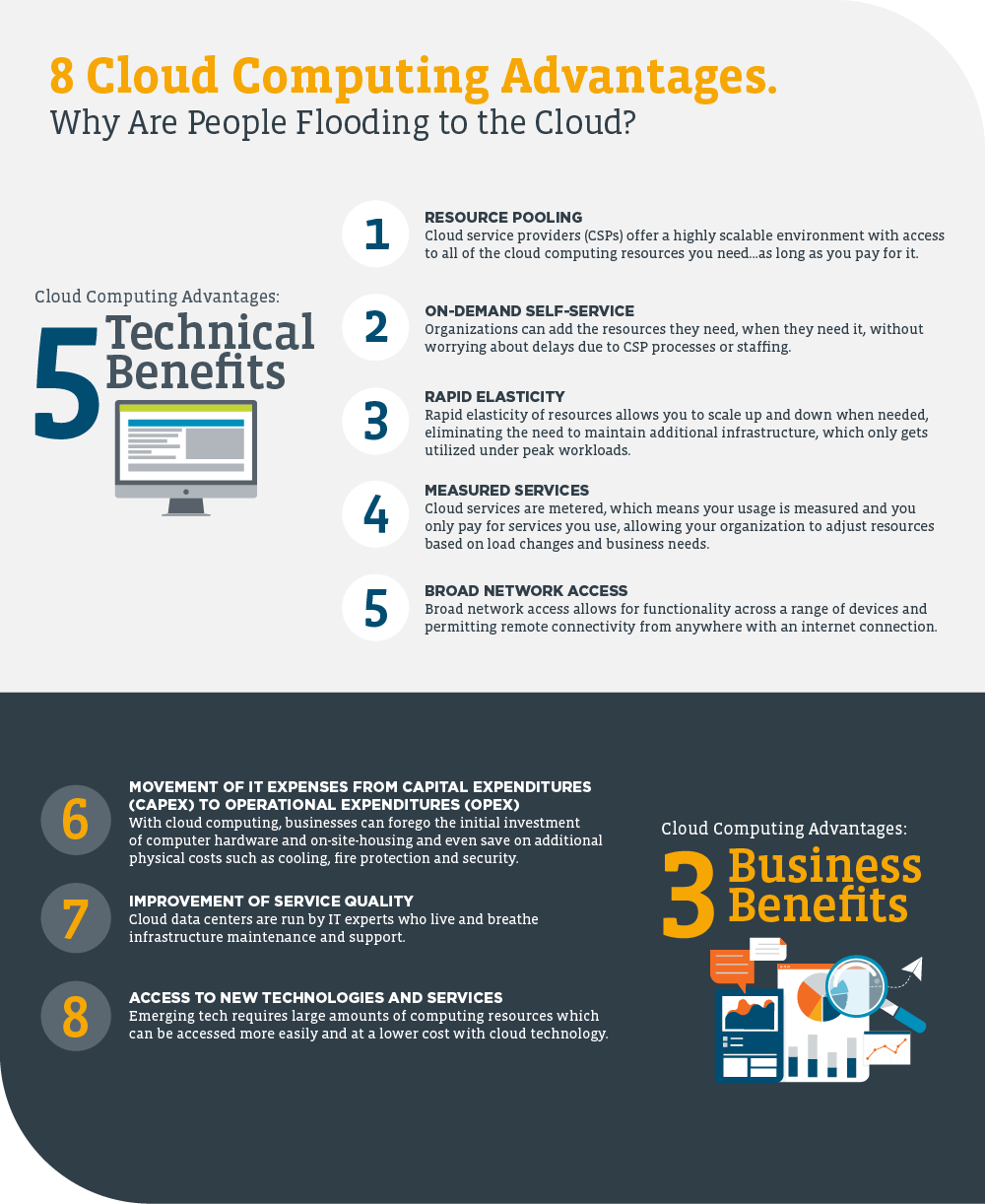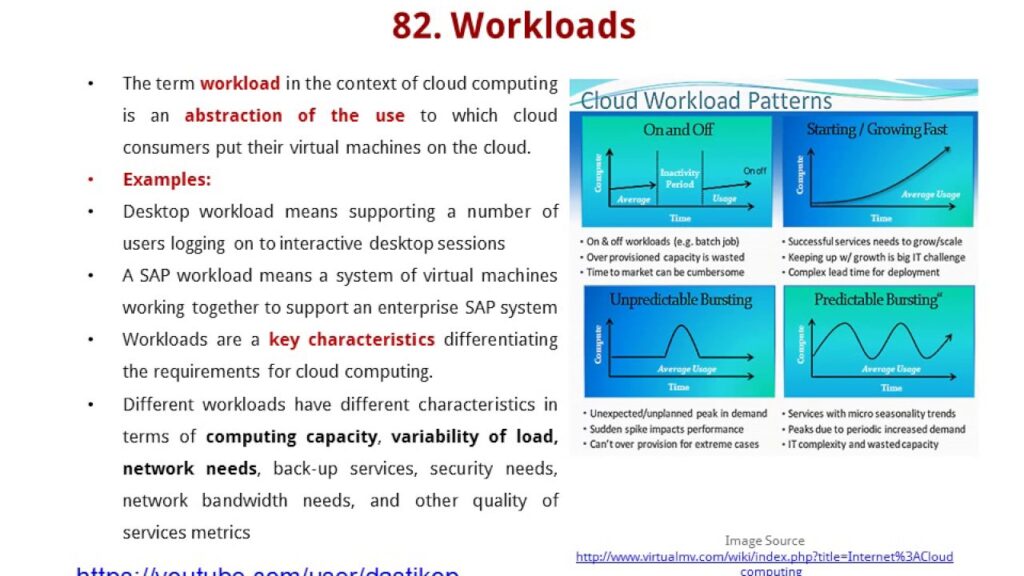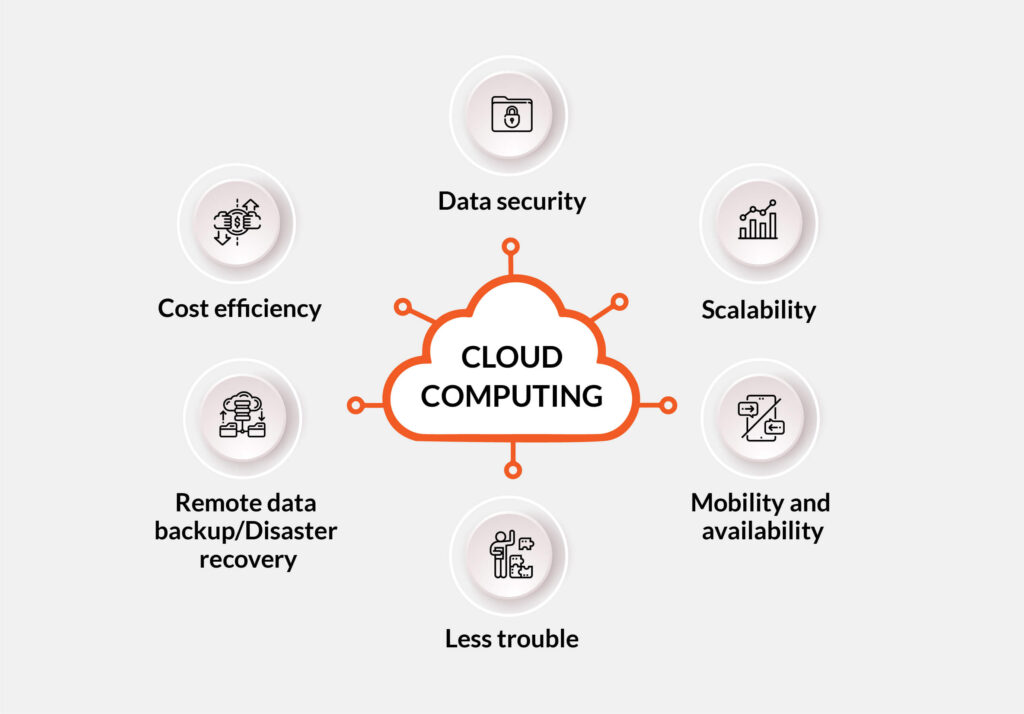As technology continues to advance, businesses are constantly looking for ways to streamline their operations and reduce costs. One of the most significant developments in recent years has been the rise of cloud computing. Cloud computing has revolutionized the way businesses manage their data and applications, offering a range of benefits that were previously unavailable. One of the most significant advantages of cloud computing is its impact on networking.
Traditionally, businesses relied on local servers to store and manage their data. This approach required significant investment in hardware and infrastructure, as well as ongoing maintenance and support costs. With cloud computing, however, businesses can access powerful computing resources and storage capabilities over the internet. This means that businesses no longer need to invest in expensive hardware, and can instead use a pay-as-you-go model to access the resources they need, when they need them. In this article, we’ll explore some of the key benefits of using cloud computing for networking, and why it is becoming an essential tool for businesses of all sizes.
Cloud Computing offers many benefits to networking including cost savings, scalability, and reliability. It saves money by eliminating the need to purchase and maintain hardware, allowing companies to pay for only the resources they use. Additionally, cloud computing can easily scale up or down to accommodate changing needs, allowing for better utilization of resources. Finally, the cloud offers a high level of reliability, as the resources are maintained by a third-party provider.

What is Cloud Computing and its Benefits?
Cloud computing is an increasingly popular technology that allows users to store and access applications, data, and other resources over the Internet. This technology has been adopted by businesses and individuals alike, offering a range of advantages over traditional computing methods.
Cloud computing offers users a range of benefits, including increased scalability, cost-effectiveness, and accessibility. By utilizing cloud computing services, users can access their applications and data from any location with an Internet connection, enabling them to remain productive and connected even when away from the office.
Scalability
One of the most significant benefits of cloud computing is scalability. With cloud computing, users can quickly and easily scale their computing resources up or down depending on their needs, allowing them to manage costs more effectively. This is especially useful for businesses that experience fluctuations in demand, as they can scale their resources up or down as needed.
Cloud computing also allows businesses to access a range of advanced computing resources, such as data analytics and machine learning, without the need to purchase and maintain their own equipment. This can save businesses time and money, as they don’t need to invest in and manage their own hardware and software.
Cost-Effectiveness
Cloud computing is also a highly cost-effective option for businesses. By utilizing cloud computing services, businesses can avoid large upfront costs associated with purchasing and maintaining their own hardware and software. Additionally, businesses only pay for the resources they use, meaning they only pay for what they need.
Moreover, cloud computing services often come with additional features and benefits, such as data backup and recovery, that are not available with traditional computing methods. This can help businesses save time and money by avoiding the need to purchase and manage their own backup and recovery solutions.
Accessibility
Cloud computing also offers users increased accessibility. With cloud computing, users can access their applications and data from any location with an Internet connection, enabling them to remain productive and connected even when away from the office.
Additionally, cloud computing services often come with mobile applications, allowing users to access their applications and data from their mobile device. This increases the convenience and flexibility of cloud computing, and allows users to remain productive even when they are away from their desk.
Security
Cloud computing services are also highly secure, utilizing encryption and other security measures to keep user data safe and secure. Moreover, cloud computing providers often utilize multiple layers of security to protect user data, ensuring that only authorized users can access it.
Additionally, cloud computing providers often offer additional security services, such as data backup and recovery, to ensure that user data is safe and secure in the event of a disaster. This can help businesses protect their data and ensure that it is available when they need it.
Reliability
Cloud computing services are also highly reliable, as they are designed to remain available even in the event of a power outage or other disaster. Additionally, cloud computing services are typically backed by service-level agreements (SLAs) that guarantee a certain level of availability and performance.
In the event that a cloud computing service experiences an outage, users can often access their data and applications from an alternative location, allowing them to remain productive and connected even in the event of a disaster.
Flexibility
Cloud computing also offers users increased flexibility. With cloud computing, users can access their applications and data from any location with an Internet connection, enabling them to remain productive and connected even when away from the office.
Additionally, cloud computing services often come with mobile applications, allowing users to access their applications and data from their mobile device. This increases the convenience and flexibility of cloud computing, and allows users to remain productive even when they are away from their desk.
Frequently Asked Questions
Cloud computing is a method of storing and accessing data over the internet instead of the traditional way of storing data on a physical drive. It offers a number of advantages, including cost savings, scalability and increased efficiency.
What is a benefit of using cloud computing in networking?
One of the primary advantages of using cloud computing in networking is cost savings. By moving computing resources to the cloud, businesses can avoid the considerable expense of hardware and software upgrades. Additionally, cloud computing allows businesses to pay for only what they need, and easily scale up or down as their needs change.
Another benefit of using cloud computing in networking is increased efficiency. Cloud computing allows businesses to access their data from any device with an internet connection, meaning they don’t have to be tied to a specific location to access their network. This makes it easier for employees to access the data they need, when they need it, no matter where they are. Additionally, cloud computing can automate many tasks, such as data backups and software updates, which can save businesses time and money.

In conclusion, the benefits of using cloud computing in networking are numerous and significant. It offers businesses and organizations a cost-effective, scalable, and flexible solution for their networking needs. With cloud computing, businesses can easily access and utilize resources on-demand, without the need for physical infrastructure or equipment. It also allows for centralized management and control, making it easier for IT professionals to monitor and maintain their networks.
Furthermore, cloud computing provides enhanced security measures, ensuring the safety and privacy of sensitive data and information. It also enables collaboration and remote work, allowing employees to work from anywhere and at any time. With these benefits, it’s no wonder why cloud computing has become an essential tool for modern businesses and organizations. As technology continues to evolve, cloud computing will undoubtedly play an increasingly important role in the networking landscape, providing users with a more efficient, convenient, and secure way to manage their networks.




